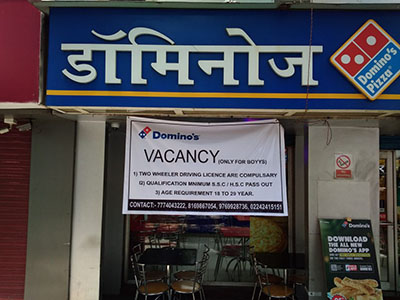
Workers’ fictive kinship relations in Mumbai app-based food delivery
*A note from Co-PI Noopur Raval: The arrival and rise of gig-work globally has ushered in a new wave of conversations around the casualization of labor and the precarious nature of digitally-mediated “gigs,” ranging from online crowdwork gigs to digitally-mediated physical work such as Ubering. Gradually, scholarship has extended beyond North America and Europe to map the landscape of digital labor in the global south. These posts that make up “India’s Gig-Work Economy” are the result of one such project titled ‘Mapping Digital Labour in India,’ where four research fellows and a program manager, me, have been studying the dynamics of app-based ridehailing and food-delivery work in two Indian cities (Mumbai and New Delhi). This project is supported by the Azim Premji University’s Research Grants program. In this series of posts, the research fellows and I offer reflections on pleasure, surveillance, morality and other aspects woven into the sociality of gig-work and consumption in India. Each post also has an accompanying audio piece in an Indian language, in a bid to reach out to non-academic and non-English speaking audiences. The series ends with a roundtable discussion post on the challenges, gender and class dynamics, and ethics of researching gig-work(ers) in India.* Download a transcript of the audio in Devanagari. Anthropologists have studied the role of kinship relations at the workplace in terms of how employers (De Neve, 2008) and workers use them (Parry, 2001). By contrast, digital labour scholars focus more on economic wellbeing and questions of fair work. But we know from the work of Mauss, Hart (Hart, 2000; Mauss, 2002) and others that all economic exchanges are also social relations. Additionally, economic and moral logics are different manifestations of the same ‘kernel of human relationships’ (Kofti, 2016). In the context of app-based food delivery work in Mumbai, workers’ actions and decisions were guided by them putting themselves in another’s shoes. Such moral acts of understanding and having understood were, as I will demonstrate, instances of Max Weber’s conception of verstehen or interpretative understanding which was important to understanding individuals’ participation in social relationships. This led me to explore gig-workers’ kinship relations at work, and their role in the existence and reproduction of these workers and this ‘new’ work. (read more...)
